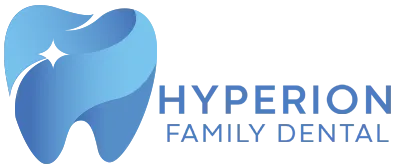For answers to popular questions about the care provided by Dr. Eugene Oriola and our team, explore the Q&A below! Understanding your smile and receiving the necessary treatment is our priority at Hyperion Family Dental in Los Angeles, California. Feel free to reach out at 323-831-0270 for any further inquiries!
Many people only visit the dentist when they have a noticeable problem. While they may think that they are saving money, the reality is that the treatments to repair and restore their teeth and smiles cost more money and time than it does to visit the dentist at regular intervals. Visiting the dental office regularly ensures that you receive preventive care to stop problems in the earliest stages of development and hopefully prevent them from developing in the first place. We can monitor your oral health and help you learn the best ways to care for your teeth so that they remain healthy. You should visit our office twice each year.
Brushing your teeth will clean the surfaces of your teeth but will not reach the areas between the teeth or below the gumline. Flossing ensures that plaque and bacteria are removed from your mouth before they can cause damage to your teeth.
Dental X-rays are extremely safe. In fact, you are exposed to less radiation with dental X-rays than you are in your day-to-day life from the sun. Advances in dentistry continue to make dental X-rays safer through digital imaging technologies and higher-speed X-rays. Additionally, federal law requires that X-ray machines be checked for safety and accuracy every two years.
Please speak with our team. We take your fear seriously and will work with you to help you feel more comfortable in our office. There are many strategies that we can use to help reduce anxiety and fear. These include medications to numb treated areas, sedation dentistry, the use of lasers instead of drills in your treatment, and a variety of techniques to reduce anxiety and mind or body pain (guided imagery, deep breathing, biofeedback, acupuncture, etc.). There are also dentophobia clinics and support groups available.
The American Academy of Pediatric Dentistry (AAPD) recommends that children visit the dentist for the first time about six months after their first tooth erupts or no later than their first birthday. These appointments are designed to help your child become comfortable in the dental office and ensure that he or he is growing and developing correctly.
Babies actually begin to develop teeth in the second trimester of pregnancy (about 16 to 20 weeks.) Teeth typically begin to emerge between 6 and 10 months of age. You should begin flossing your child’s teeth as soon as they have two adjacent teeth.
Primary teeth are critical to maintaining good oral health and proper development. Your child’s primary teeth facilitate:
- Proper speech production and development
- Proper chewing, nutrition and good digestion
- Straighter smiles — primary teeth hold the places of the adult teeth
- Excellent oral health
We cannot emphasize enough how important it is that you take good care of your child’s primary teeth. Please make an appointment with our team if you have questions.
Cosmetic dentistry is a dental field that focuses on improving the appearance of your teeth so that you can enjoy a more beautiful smile. It includes preventive care as well as restorative treatments. Some common cosmetic dental treatments include:
- Teeth whitening
- Dental veneers
- Composite (tooth-colored) dental fillings
- Dental bonding
- Dental crowns and bridges
- Dental implants
- Orthodontics
There are several options available to replace your missing tooth. When you visit our office, our dentist will examine your mouth, discuss your oral health needs and smile goals with you, and review your treatment options. We will design a customized treatment plan to restore your tooth and your smile. Some of the tooth replacement options we may discuss include:
- Dental implants
- Dental bridges
- Complete or partial dentures
A root canal is a procedure performed when injury, infection or decay reach the inner tissues of the tooth. Our dentist will clean out the infected pulp tissue within your tooth roots, sterilize the canals, and then fill them with medicated material and seal the tooth to prevent future infection. While root canals have a reputation of being painful, advances in dentistry have made it possible to perform your treatment comfortably as well as effectively.
Orthodontics is a field of dental specialty that focuses on diagnosing, preventing and treating dental and facial irregularities, including misaligned teeth and jaws. An orthodontist is a dental specialist who has received two to three years of additional training following dental school in managing tooth movement and guiding facial development.
The American Association of Orthodontists® recommends that children receive their initial orthodontic screening by age 7. At this age, several permanent teeth have erupted and any developing problems will be easy to diagnose and treat.
No! While the majority of patients who receive orthodontic treatment are children or teenagers, more and more adults are seeking orthodontic treatment to improve their smiles and oral health. As long as your teeth and supporting structures are healthy, you can receive treatment.
Periodontal disease, also known as gum disease, is an oral condition that affects the gums and supporting structures in your mouth. It begins as a bacterial infection of the gums and gradually progresses until it destroys your gums and bone structure. The milder stage of periodontal disease is known as gingivitis, while the more severe form of the disease is known as periodontitis. You should be checked for periodontal disease each time you visit our dentist.
Periodontal disease is caused by the harmful bacteria trapped in plaque. As plaque hardens into calculus (tartar), the disease becomes more established in your mouth. Gum attachments begin to separate from your teeth and create pockets that harbor these harmful bacteria. If gum disease is allowed to progress without treatment, the condition may become irreversible.
Symptoms of periodontal disease include:
- Red, swollen or tender gums, or other pain in your mouth
- Bleeding while brushing, flossing or eating hard foods
- Gums that are receding or pulling away from the teeth
- Loose or separating teeth
- Pus between your gums and teeth
- Sores in your mouth
- Persistent bad breath
- A change in the way your teeth fit together when you bite
- A change in the fit of dentures or other removable appliances
- Halitosis (bad breath)
Halitosis (bad breath) may be caused by any number of factors, including:
- Morning time
- Poor oral hygiene
- Cavities
- Periodontal disease
- Poorly fitted appliances
- Dry mouth
- Tobacco products
- Medical conditions or illnesses
- Dehydration, hunger or missed meals
- Certain foods
You can prevent bad breath by visiting our dentist regularly, staying hydrated, practicing good oral hygiene, using mouth rinses and by not using tobacco products. If your halitosis persists, we recommend that you consult a physician to determine if your bad breath is caused by a medical condition and receive an appropriate treatment.

